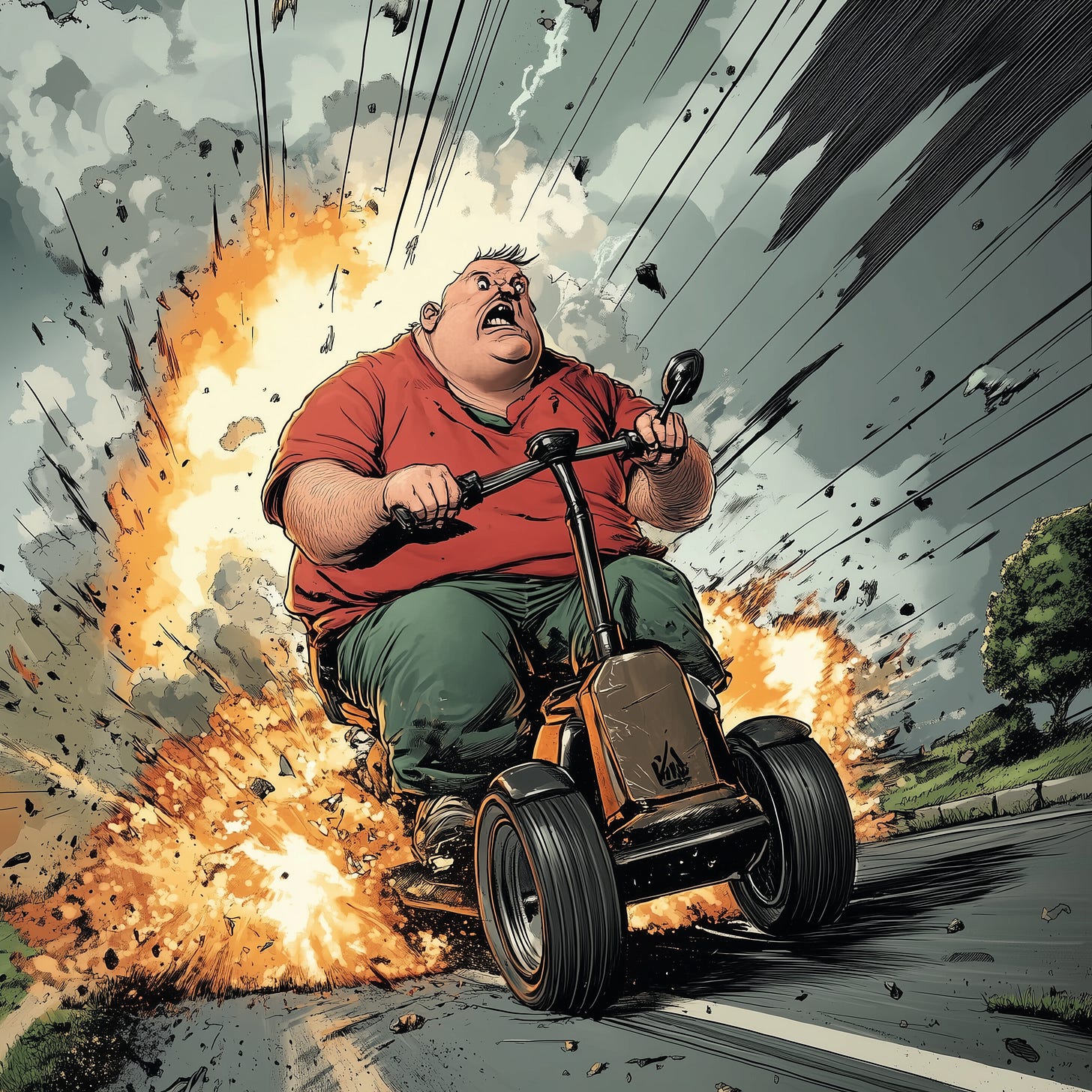Health is the Ultimate Disaster Preparedness
What's the point of emergency preparedness if you can't even handle the day to day?
I’ve recently been having thoughts about prepping. Admitting that kind of feels like being in a 12-step meeting, describing how I’m about to fall off the wagon. For the uninitiated, “prepping” is short for “preparing” and in this context it means “preparing for disaster”. This year’s Alexander Mountain fire just a few miles west of our house in Loveland had us thinking of putting together bug-out bags as the evacuation zones widened to within a mile of us. At the same time a marketing course I’m taking mentioned businesses selling to preppers and I wondered about whether I could do the same.
I feel I should give fair warning here: prepping is quite the rabbit hole. “Disaster preparedness” is a wildly open term spanning everything from “the road flooded and we can’t get to Walmart for toilet paper” to “a meteor hit Krakatoa and we’ll have constant winter for 12 years with periods of zombies”. For some it turns into an obsession deep enough that they end up in a completely off-grid farmstead in Montana with more weapons and ammunition than a small nation. It starts with completely sane and valid questions like “What would I do if a [tornado / fire / hurricane / swarm of killer hornets] wiped out my home and town?” and pretty soon turns into “What would I do if society failed due to [insert your favorite bogeyman]?”. All of a sudden every news report is a validation of why you spent $100K building an underground shelter with 3 years of shelf-stable rations.
And it’s not actually that crazy. I had a friend whose family left Croatia when things were bad who was very clear about how quickly the veneer of society can disappear. In the beginning of COVID there were bodies piling up in freezers. In North Carolina the flooding during Hurricane Helene resulted in people fully isolated for days without power, communications, or access to food and medications. That last one - medications - is a big one.
Minette and I were sitting in a Fort Collins café yesterday eating panini and drinking cappuccino throwing around fun ideas for prepper-related businesses. When I looked at my own fitness I realized the futility of disaster-preparedness that doesn’t include a health component. What does it mean to prepare for a disaster, even just a short one, when you are not healthy enough to survive it? What does it mean to have an emergency backpack ready but not be strong enough to carry it with you to safety? What if you are all stocked up with supplies for the next coronavirus outbreak but your immune system is so poor that you can’t survive it?
There are volumes of information on emergency preparedness at ready.gov but not a peep about how much further ahead you’ll be if you are able to walk 5 miles with a backpack, brush off a little extra exposure to the elements, spend a couple of days without food, and not need to worry about medications in the first place. It says nothing about how helpful it is during a disaster to not be counted among the many that need medical attention.
Life throws little mini-disasters at us all the time. The flu that keeps us down for a few days, that little hiccough with the finances, the child that is struggling, the parent that has a fall, the luggage that gets lost. Those aren’t equivalent to losing a house in a wildfire, but the scope of emergencies is a continuum. Being healthy of mind and body - fit, strong, flexible - keeps us more ready and able to handle whatever is coming our way.





